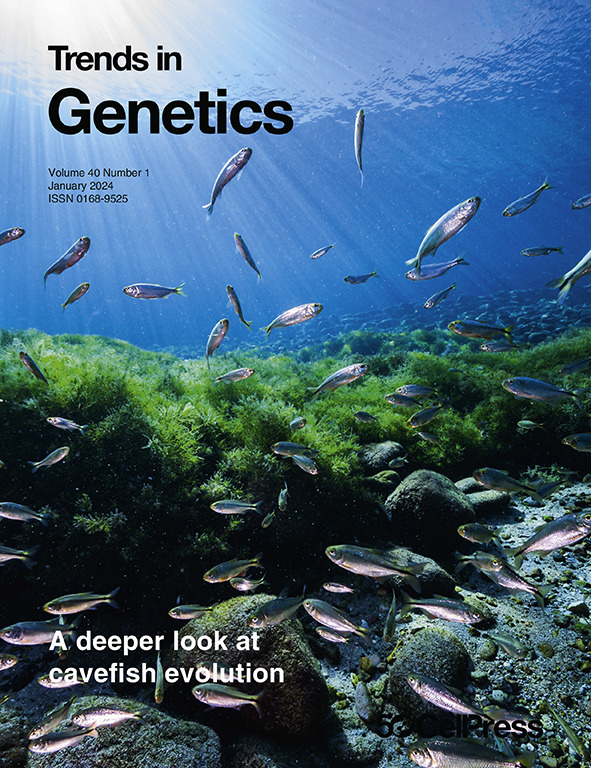表观遗传学与表观基因组学的区别。
IF 13.6
2区 生物学
Q1 GENETICS & HEREDITY
引用次数: 0
摘要
表观遗传学 "是指不同的细胞类型或细胞状态通过多次细胞分裂得以遗传的过程。表观基因组学 "指的是与 DNA 相关的物理和功能实体,包括组蛋白修饰和 DNA 甲基化,而不是遗传的概念。将表观遗传学和表观基因组学混为一谈会造成混淆,并导致对基本生物学过程的误解。本文章由计算机程序翻译,如有差异,请以英文原文为准。
The distinction between epigenetics and epigenomics.
'Epigenetics' is the process by which distinct cell types or cell states are inherited through multiple cell divisions. 'Epigenomics' refers to DNA-associated physical and functional entities including histone modifications and DNA methylation, not concepts of inheritance. Conflating epigenetics and epigenomics is confusing and causes misunderstanding of a fundamental biological process.
求助全文
通过发布文献求助,成功后即可免费获取论文全文。
去求助
来源期刊

Trends in Genetics
生物-遗传学
CiteScore
20.90
自引率
0.90%
发文量
160
审稿时长
6-12 weeks
期刊介绍:
Launched in 1985, Trends in Genetics swiftly established itself as a "must-read" for geneticists, offering concise, accessible articles covering a spectrum of topics from developmental biology to evolution. This reputation endures, making TiG a cherished resource in the genetic research community. While evolving with the field, the journal now embraces new areas like genomics, epigenetics, and computational genetics, alongside its continued coverage of traditional subjects such as transcriptional regulation, population genetics, and chromosome biology.
Despite expanding its scope, the core objective of TiG remains steadfast: to furnish researchers and students with high-quality, innovative reviews, commentaries, and discussions, fostering an appreciation for advances in genetic research. Each issue of TiG presents lively and up-to-date Reviews and Opinions, alongside shorter articles like Science & Society and Spotlight pieces. Invited from leading researchers, Reviews objectively chronicle recent developments, Opinions provide a forum for debate and hypothesis, and shorter articles explore the intersection of genetics with science and policy, as well as emerging ideas in the field. All articles undergo rigorous peer-review.
 求助内容:
求助内容: 应助结果提醒方式:
应助结果提醒方式:


